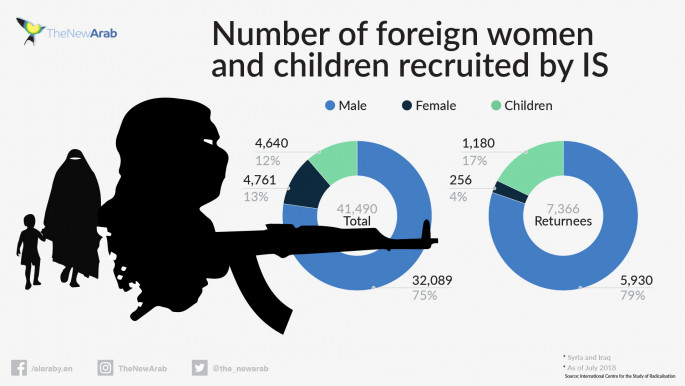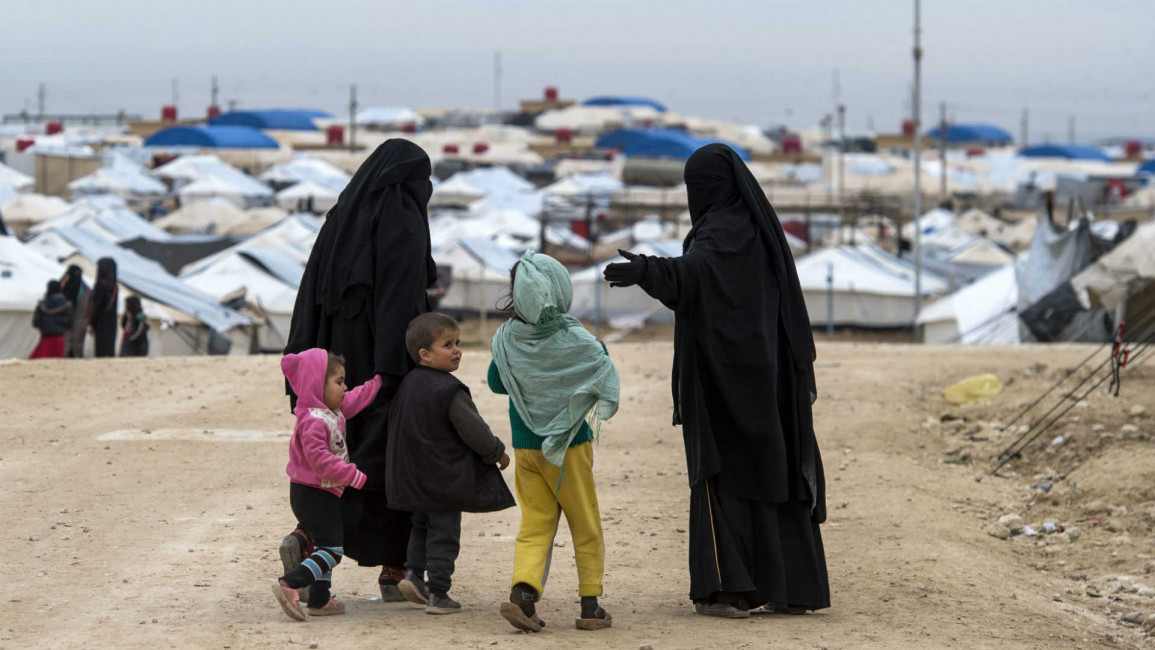UK to repatriate first citizens from northeast Syria 'in coming days'
The UK is set to repatriate the first British citizens from an area of northeast Syria, formerly controlled by the Islamic State (IS) group, in a major policy shift by the government.
The BBC reported on Thursday that the individuals being brought back from the region will return to the UK in the coming days.
The BBC said that for security reasons it could not provide further details of the repatriation.
Last month, reports in the British media suggested that the UK was secretly planning to repatriate the wives and children of Islamic State group fighters.
There are currently 60 British children and 30 women being held by Kurdish authorities in northern Syria, a report by Human Rights Watch released in October stated.
According to a UK minister who spoke to the Sunday Times, Prime Minister Boris Johnson had already agreed to repatriate some of the minors.
But earlier this week, it was reported that UK Home Secretary Priti Patel blocked the initiative to rescue British orphans and unaccompanied minors home from Syria.
 |
|
| Click to enlarge |
Patel, along with defence secretary Ben Wallace and Chancellor Sajid Javid, voted against the operation to remove the children from camps in Syria during National Security Council meetings in October, sources revealed to the Guardian.
The ministers' claim that the children posed "security concerns" led to the rescue operation - scheduled for late October - being called off at the last minute.
Earlier this year, the issue of British IS families took the media spotlight when former London schoolgirl Shamima Begum spoke to media outlets in a bid to secure her return.
Former Home Secretary Sajid Javid revoked Begum's British citizenship in March, effectively rendering her stateless.
In August, similar action was taken against 23-year-old Jack Letts, better known as "Jihadi Jack" by the UK media.
So far only around 1,200 foreign nationals have been repatriated from Syria and Iraq, to Turkey, Kosovo, Russia, Tajikistan, Uzbekistan and Kazakhstan, Human Rights Watch says.

![Trump's warm greeting to Netanyahu contrasted with Kamala Harris's critical reception [Getty]](/sites/default/files/styles/image_330x185/public/2024-07/GettyImages-2162908988.jpg?h=69f2b9d0&itok=OLc5dL88)
![The brutal assault on Khan Younis has killed dozens and displaced thousands more [Getty]](/sites/default/files/styles/image_330x185/public/2024-07/GettyImages-2162526709.jpg?h=d3eda8cf&itok=n5N-o8p5)
![Members of the Algerian delegation threw roses into the Seine [Getty]](/sites/default/files/styles/image_330x185/public/2024-07/GettyImages-2162980872.jpg?h=199d8c1f&itok=h_3o_TOL)